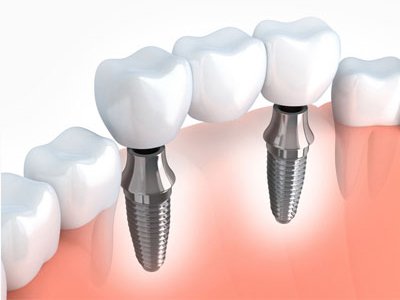Dental crowns are used as caps on missing or fractured tooth to protect the life of your teeth. Dental Crowns are needed to:
Furthermore, a Dental Crown gives your tooth strength, form, and size, as well as improving its beauty. If your dentist has advised you to have a crown but you are postponing the procedure, you risk damaging your tooth to the point where extraction is the only option.
Moreover, not getting a dental crown can wear down other adjacent teeth causing damage.
Dental Crowns can be made in variety come in various materials such as:
Metal crowns come to the rescue if you’re seeking for a long-term and sturdy option. The gold crowns are the most common and adhere nicely to the tooth. These can even survive biting and strong chewing forces. They endure longer and do not quickly wear out since they are stronger. The only disadvantage is that they are noticeable from afar, making them only ideal for molars.
These are the greatest alternative if you have aesthetic concerns as well as a desire to have metal crowns placed. The inside of the teeth is composed of metal, while the outer portion of the crown is made of porcelain. As a result, it has a dual benefit: metal offers strength, while porcelain matches the colour of the teeth, giving it a natural appearance. They resemble natural teeth the most.
Ceramic crowns are the greatest alternative if you do not want metal implanted inside your mouth but yet want the strength of metal crowns. Not only is it powerful, but it also mixes in with your natural tooth colour, making it virtually undetectable. It is the greatest solution for the front, rear, and even bridges because it has no aesthetic difficulties. This Dental Crown solves the problem of porcelain wearing down and metal showing through. Because the forces produced while biting can wear down your teeth, they may not be a viable solution for molars.
Dental Crowns carry a lot of myths with them a few of them are:
There is a misconception that dental crowns do not match with your teeth hence give the impression of an artificial tooth. However, with changes in technology crowns come in various material which looks exactly like your natural teeth. And even metal crowns are a good and viable option because they are used as molars and are never seen.
Even though the crowns are now more durable and long-lasting, they will not last forever. It also relies on how well they’re looked for. Visit your dentist every 6 months to ensure they last longer. Your dentist will check your crown and replace it as needed.
The most common misconception. They fear that food and drink will stain their teeth over time, yet crowns are comprised of porcelain and ceramic, which do not stain easily.
People assume that crowns are only used when a tooth is shattered, a root canal has been performed, or a tooth has been broken or chipped. However, they are utilised in cosmetic dentistry to improve the appearance and create a whiter and more beautiful smile.
Though ceramic and porcelain are harder substances yet if you bite on something extremely hard, or face accident or trauma then your crown may break.
Because the crown covers your tooth, it is more susceptible to decay. Though crowns have no risk of degradation because they are artificial, the area beneath them can. To avoid a cavity, it is necessary to maintain your teeth and the surrounding area clean.
The price of dental bridges and crowns depends on the type chosen by the patients. For example, you’ll have to pay more for an all-porcelain bridge than for a metal bridge
